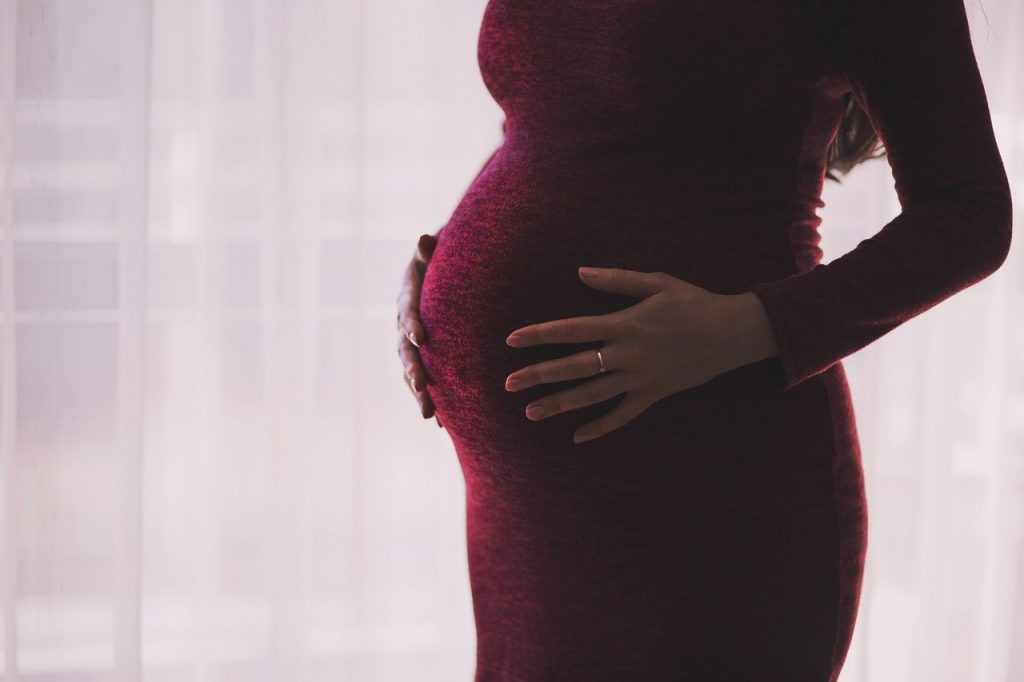What are Perinatal Mood and Anxiety Disorders?
Perinatal Mood and/or Anxiety Disorder (PMAD) is a general term used to describe a wide range of emotional disorders a woman can experience during the pregnancy, or within the first year (or even longer) after birth, adoption, infertility, miscarriage, or abortion. Other than hemorrhoids, this is the most common complication of childbirth!
Fathers can also diagnosed with Postpartum Depression (PPD).
Three types of disorders are commonly recognized:
- The Baby Blues
- Postpartum Depression
- Postpartum Psychosis
Is There Really Something Called the Baby Blues?
Approximately 60-80% of women experience the “baby blues.” This term refers to a period of temporary moodiness and/or emotional reactivity which usually begins 1-3 days after delivery. Symptoms may include:
- crying spells
- sadness
- irritability
- frustration
- fatigue
These symptoms come and go but usually disappear on their own within a couple of days (or a maximum of six weeks). Although the new mom may feel quite emotionally and physically miserable or unstable, the “baby blues” are not considered to be true postpartum depression. However, she may still benefit from professional help for a short time, to get over this rough period.
How Can I Tell if it’s Postpartum Depression?
It is estimated that at least 10 – 20% of new mothers experience postpartum depression; however, it is suspected that this number may be greater since many cases go unrecognized or unreported. Symptoms of postpartum depression are similar but more persistent (lasting throughout the day and longer than two weeks) than those of the baby blues. They usually develop a few weeks after delivery but can occur at any time during the first year after childbirth. Symptoms may include:
- Frequent crying
- Sleep disturbances
- Appetite disturbances
- Suicidal thoughts
- Anxiety or panic attacks (sometimes) – each may precipitate or worsen the other
- Feeling overwhelmed, inadequate, unable to cope, indecisive
- Lack of energy
- Exhausted, but usually unable to sleep (or oversleeping, in some cases)
- Obsessive worry about the health of the baby and/or family members
- Feeling guilty (may be about not bonding emotionally to the baby or other things)
- Withdrawal from other people
- Frightening thoughts or fantasies
- Excessive fear of being a “bad mother,” overly sensitive to others’ reactions
- Impaired concentration
- Feels hopeless and helpless
- Anger/rage
- Irritability
- Lack of enjoyment or pleasure from usual activities
Many women are ashamed of their feelings and often do not seek help. They suffer in silence and hope that their depressed mood just “goes away.” They feel guilty for something that is not their fault! They may be afraid of being labelled as “crazy,” hospitalized, or having their baby taken away. Early recognition and proper treatment are important. Many women suffering from postpartum depression have never suffered from emotional or mental problems in the past. Symptoms come as a shock, without warning, and are very frightening to them.
There are many risk factors for perinatal mood and anxiety disorders. Women may have some of these or none of these. They may include:
- History of depression, bipolar, anxiety, or other psychiatric illness
- Family history of depression or postpartum mental illness
- Personality issues (e.g. perfectionist)
- History of sexual and/or physical abuse
- Lack of personal, family, and/or social support
- Relationship conflicts
- Military spouse
- Recent losses or unresolved past losses (especially of own mother)
- Recent change in life circumstances (e.g. moving)
- New immigrant
- Traumatic delivery
- PTSD
- Multiple birth
- High risk pregnancy
- Infant with medical problems
- “High Need Baby”
- Breastfeeding difficulties
- History of premenstrual dysphoric disorder or other hormonal illness (PCOS, thyroid)
- Financial difficulties
- Teenage mother
- Single mother
- Unwanted pregnancy
Is Postpartum Psychosis Dangerous?
Postpartum psychosis is a severe but extremely rare (one or two women in a thousand) disorder that can develop in the postpartum period. Often, there is a history of a mood disorder, such as bipolar or previous psychosis. This illness is characterized by a loss of contact with reality for extended periods of time, and often first manifests itself by inability and/or unwillingness to sleep for several days. Symptoms usually occur during the first few days or weeks after delivery and include:
- Bizarre or uncharacteristic behavior and/or conversations
- Confusion
- Hallucinations (hearing and/or seeing things that are not there in reality, for example, voices telling the mother to hurt herself and/or the baby)
- Delusions (false beliefs that remain despite evidence to the contrary), frequently with religious themes
- Rapid mood swings
- Suicidal thoughts or actions, or threats and/or actions to harm self and/or the infant
- She may also seem “speeded up”
Postpartum psychosis is a very serious emergency and requires immediate medical help, which may include hospitalization and medication.
This is the most frequent cause of suicide or infanticide, but is also highly preventable. Women who get treatment do recover from postpartum psychosis and are able to achieve long-lasting and maintain wellness. They do not permanently lose their ability to successfully bond with and mother their children.
A woman manifesting unusual and/or uncharacteristic behavior shortly after giving birth may be experiencing postpartum psychosis. She may be at risk for harming herself and/or her baby or family. She needs to be taken immediately to her health care provider or the nearest hospital emergency department for evaluation and treatment..
Can You Have Depression During Pregnancy?
Of course! Not everyone is happy and glowing for nine months, even if the media around us depict it that way.

During pregnancy, women go through so many physical and emotional changes, that it may be difficult to determine which is a normal pregnancy related symptom, and what may be much more. It is estimated that up to 25% of expectant moms experience some level of depression and a certain percentage of women will experience a major depression DURING pregnancy. Research has demonstrated that the most common time for women to have an episode of major depression is during the childbearing years.
“Women blame a lot of things on the pregnancy…
- For instance, any pregnant woman may have trouble getting out of bed in the morning. But if all you want to do is sleep or if previously pleasurable hobbies and activities no longer hold any allure for you, you may be depressed.
- Also, while in your first trimester you may suffer nausea, insomnia and fatigue, you should see a change in the second trimester. If you don’t start feeling better within a matter of weeks, or if every day is a bad day, seek help.
- Likewise, if you have any thoughts of harming yourself, immediately contact your healthcare professional.
- Enlist help from a spouse, partner or friend to provide an objective opinion on your moods, activity level and overall mental health. Others may notice gradual improvements or declines that you haven’t.”
– Joanne Gilroy, CNM, CFNP, Instructor, Syracuse University’s College of Human Services and Health Professions
Are You at Risk for Depression During Pregnancy?

- Family history of depression and/or suicide, particularly in women (her mother experienced PPD)
- Present or past substance abuse or alcoholism
- History of postpartum depression
- History of premenstrual dysphoric disorder (PMDD)
- Body image issues, including anorexia and bulimia
- Infertility
- Unwanted or unintended pregnancy
- Domestic or intimate partner conflict or violence
- Age (adolescents and older mothers are particularly prone)
The signs and symptoms of depression during pregnancy are almost identical to those of postpartum depression. If there are any of the above risk factors, consult your health care provider. Treatments are available that can help “nip it in the bud,” which can help prevent more severe depressive symptoms later.
Women fear taking antidepressants during pregnancy; afraid that what may help them may harm the developing baby. This worry is normal and understandable. However, more and more health care providers (such as specialists in reproductive psychiatry) and studies now scientifically address risks vs. benefits of medications during this time. These are helping women at risk for perinatal mood/anxiety disorders, with psychiatric histories, or experiencing acute symptoms to make educated and informed decisions as to the pros and cons of whatever choice they do make.
An untreated depression (that does not improve and/or becomes more severe as the pregnancy advances) has its own set of risks for mother and baby.
YOU ARE NOT ALONE! THIS IS NOT YOUR FAULT! YOU WILL GET BETTER!

These can most commonly occur any time during pregnancy and within the first year postpartum or even longer. Underlying and undetected physical illness may exist (for example, thyroid dysfunction or anemia). These should be ruled out or treated by a health care provider as soon as possible.
Generalized Anxiety
- Fears of going crazy or insane; worries about never getting over this or feeling normal again
- Feeling that there is always something that must be done, e.g. cooking, cleaning, need to frequently hold and entertain baby
- Feeling that it is impossible to relax, like being on “pins and needles” much of the time
- Overreacting to external stimuli, like television news or scary programs
- Worried all the time about just about everything
- Physical symptoms like nausea, weakness, heart pounding, short of breath, chest pain
- Sleep disturbances
- “What ifs…” predominate thought process
- Not responsive to efforts at reassurance
- Fears being alone
- Upset by minor imperfections
- Depressed about feeling anxious and anxious about feeling depressed – vicious cycle
Obsessive Compulsive Disorder (OCD)
- One specific or a variety of intrusive, repetitive, racing, scary thoughts
- Frequently checking on the baby to ensure breathing and well-being
- Repeatedly checking locks, stove, baby’s diaper
- Preoccupied with own and/or baby’s health to an extreme
- Fears harm/fantasizes about hurting self and/or baby; avoids scary things (knives), situations (stairs), or places (leaving home)
- Realizes and may say that thinking is “crazy” and states no desire to act on disturbing thoughts
- Evasive or hesitant to speak about what she is thinking or feeling; fears baby will be removed by child welfare agency
- Similar to post-traumatic stress disorder with specific triggers that increase anxiety
- Usually follows traumatic birth and delivery experience
- Anxious about feeling anxious and depressed
- May or may not have specific cause or incident
- “Panic attacks,” usually for the first time
- Multiple trips to the emergency department (fears having a heart attack or dying)
- Significant anxiety about being left alone
- Reliving birth trauma; may have triggers, nightmares, and flashbacks
